Fat Transfer in Hampshire
Search and Compare the Best Clinics and Doctors at the Lowest Prices for Fat Transfer in Hampshire
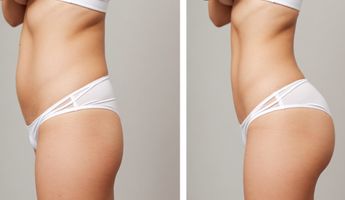
Find the best clinics for Fat Transfer in Hampshire
With Medijump you can browse 1 facilities offering Fat Transfer procedures in Hampshire. The cheapest price available is $2,294 in Greater London. And for the cheapest price globally, prices start from $167 in Thailand.
Fat Transfer in United Kingdom
Price: $ 2,294
Fat Transfer in Greater London
Price: $ 2,294
Thailand offers the best prices Worldwide
Price: $ 167
TK & LM Mellor Limited, located in Waterlooville, Hampshire, United Kingdom offers patients Fat Transfer procedures among its total of 10 available procedures, across 1 different specialties. Currently, there's no pricing information for Fat Transfer procedures at TK & LM Mellor Limited, as all prices are available on request only, whilst the national average price is approximately $3,069. All procedures and treatments are undertaken by just a small team of specialists, with 3 in total at the Hospital, and they have multiple recognized accreditations, including: GMC - General Medical CouncilGMC - General Medical CouncilGMC - General Medical CouncilBAOMS - British Association of Oral and Maxillofacial Surgeons
- Home
- United Kingdom
- Hampshire
Compare Before & After Photos of _procedure_photos.phpFat Transfer


Front view
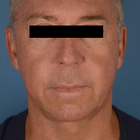
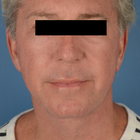
Front view
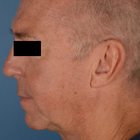
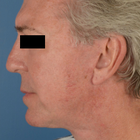
Full-side view
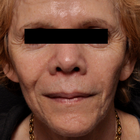
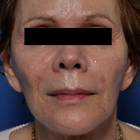
Front view
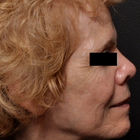
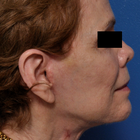
Full-side view
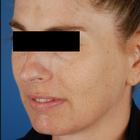
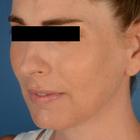
Half-side view
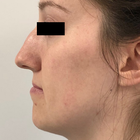
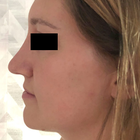
Full-side view
WHY US?
At Medijump, we're making medical easy. You can search, compare, discuss, and book your medical all in one place. We open the door to the best medical providers worldwide, saving you time and energy along the way, and it's all for FREE, no hidden fees, and no price markups guaranteed. So what are you waiting for?

Free

Best Price

Widest Selection

Risk-Free
What you need to know about Fat Transfer in Hampshire
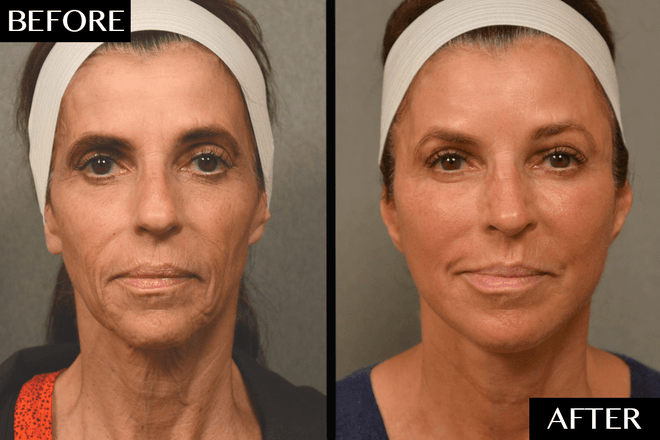
Also known as Fat Harvesting, Fat Grafting, Fat Injections, Lipofilling, Fat Transfer is a cosmetic surgery involving the movement of fat from one part of the body to another. During this procedure, your own fat will be used to fill in irregularities and grooves, primarily in the face, around the temples, eyes, chin, and lips. It can also be used to enhance the appearance of the breast, feet, hips, buttocks, and hands. The procedure is now a well-established technique that was perfected in the early nineties.
Some of the most common aesthetic indications for undergoing fat transfer / lipofilling include sunken cheeks, the disappearance of fat from the cheekbones, deep grooves running from the nose to the corners of the mouth, and in some instances of lines between the lower eyelids and the cheek. It is also one of the most common methods used for lip enhancement. In addition, lipofilling can be used to smooth out all types of irregularities such as those resulting from poorly performed liposuction or injuries.
The necessary fat is obtained by a limited liposculpture through one or several 3 to 5 mm incisions. It is normally taken from the abdomen or inner thigh. The aspirated fat is processed by centrifuging, filtering or rinsing. Pure liquid fatty tissue ready for injection is the result. The fat is then injected where needed. The fat is evenly distributed into the area by injecting minute amounts in the tissues so that the injected fat is well surrounded by healthy tissue. This ensures that the transplanted fat remains in contact with the surrounding tissues that must supply it with oxygen and nutrients.
What is the cost of Fat Transfer in Hampshire?
Being aware of the costs linked to the Fat Transfer pricing in Hampshire is vital for efficient budgeting and organizing. Pricing can differ greatly conditional to numerous things, such as the intricacies of the operation, the quantity of fat transferred, the surgeon's skill level, and the clinic's place. Conducting meticulous research and obtaining diverse quotations from multiple providers before settling is advisable.
Bear in mind, the Fat Transfer is generally deemed a vanity procedure, thus, it is not typically insured by health insurance providers. Exceptions may exist if the operation holds a medical necessity, like reconstruction operations post-mastectomy or injury. It's always advantageous to liaise with your insurance provider to grasp the specific details of your coverage and to ascertain the possible out-of-pocket expenses you could face.
What does a Fat Transfer Procedure Involve?
Consisting of two completely different procedures, extraction of fat called liposuction and transfer of fat through injections. Both the donor and recipient sites are sedated by giving local anesthesia. After this, fat is harvested through injections from the sites where adipocytes are tightly packed, such as the buttocks or abdomen. However, the fat present in lateral sides of the thighs and lower abdomen is also good fat as it contains a larger concentration of adipose-derived stem cells. These stem cells promote angiogenesis and adipogenesis at the recipient site - multiple injections are used to do this.
The material extracted is centrifuged, sedimented and filtered for excessive liquid and pure fat cells are injected just below the skin. This is the most difficult step of fat transfer to inject fat evenly in different layers of recipient tissue. Cannulas and syringes of different sizes are used to do this. In the case of breast augmentation, multiple fat injections are applied to the breasts. It is ensured that these fat cells are injected near a blood vessel so the cells don't die due to a lack of nutrition. Proper nutrition is needed for the cells to survive and grow.
What are the types of Fat Transfer?
Facial fat transfer: If you have facial creases, such as laugh lines, smile lines, and crow’s-feet, fat can be removed from your abdomen, thighs, or other areas and be injected into your face. Acne scars and sunken areas of the face, lips, and cheeks can also be filled in. Your plastic surgeon can even use grafted fat to minimize lines between your nose and mouth, correct skin depressions or indentations and minimize forehead wrinkles. (Facelift, Lip Augmentation)
Breast augmentation: Fat transfer breast augmentation essentially uses liposuction to take fat from other parts of your body and inject it into your breasts. This is a breast augmentation option for women who are looking for a relatively small increase in breast size and would prefer natural results.
Breast implants plus fat grafting: If your breast shape needs optimizing during a breast implant procedure, fat grafting can be useful. If you have residual breast irregularities after undergoing breast augmentation with implants, the irregularities can be filled in with fat to produce a smooth contour and an optimal shape.
Breast reconstruction with fat grafting: If you have breast defects following lumpectomy for breast cancer, fat grafting is an effective method for filling in these defects. Fat grafting is also an option for total breast reconstruction following mastectomy; however, to achieve sufficient breast volume, this is usually a multistage process that requires at least two to four sequential fat grafting procedures.
Buttock augmentation with fat grafting: Many people who desire a fuller, more rounded buttock will opt for a “Brazilian butt lift” which uses fat transfer to provide a more curvaceous buttock without the use of an implant. Liposuction is commonly used to both sculpt the surrounding area and collect the autologous fat to be injected.
Hand rejuvenation with fat grafting: Fat grafting into your hands is effective for adding volume, “plumping up” wrinkled areas, covering underlying vessels and tendons and improving the quality of your skin over time.
How Long Should I Stay in Hampshire for a Fat Transfer Procedure?
As an outpatient procedure, just a couple of hours are needed depending upon the amount of fat that is to be removed and transferred. You can leave the hospital on the same day or sometimes an overnight stay is advised, and in some cases, more than one session is needed. You should stay in Hampshire for at least 10-14 days after being discharged for regular check-ups. During this period, your health and results of the procedure are monitored by your surgeon.
The precise duration of your visit will primarily hinge on your personal situation, including the scope of your surgery, your total health condition, and your body's healing capability. It is always wise to engage in open dialogue with your surgeon about the anticipated period of your stay.
What's the Recovery Time for Fat Transfer Procedures in Hampshire?
The recovery period is different for different areas of your body. After a buttock augmentation, you have to sleep on your stomach or keep standing for at least 4 weeks. Because sitting can dissipate the fat. The shape of the augmented area might appear irregular initially, it will get a proper contour after some time. There will be moderate swelling and bruising at both the donor and the recipient sites for 2 weeks. Your face might appear fat and plump after fat grafting but it will settle down before long. You might suffer from moderate pain for a few days. Pain killers are given to deal with this. Almost 6 months are required for the results to fully show.
What sort of Aftercare is Required for Fat Transfer Procedures in Hampshire?
Things to consider:
- Regular checkups after being discharged.
- Take your medicines regularly, as and when prescribed by the doctor. Avoid self-medication.
- Follow a healthy diet plan for a better recovery.
- Ensure the presence of a friend or family member with you in the early few days to help you with house chores.
- Avoid excessive movement during the early few weeks and do not sit on your butts in case of butt fat transfer because it can dissipate the fat rendering it ineffective.
- Look for the signs of blood clot formation, excessive bruising, etc. Visit your doctor immediately if you find any abnormal thing.
What's the Success Rate of Fat Transfer Procedures in Hampshire?
When exploring any health-related process, the success ratio becomes a key element to consider. The efficiency of the Fat Transfer in Hampshire hinges upon various aspects such as proficiency and expertise of the surgeon, the health condition of the individual, and compliance to the guidelines of care after the operation. Fat transfer has been gaining fame due to its dual advantage of eliminating unnecessary fat from the body and accentuating preferred areas.
The outcomes of Fat Transfer show promising persistency. Many people have enjoyed pleasing results that lasted for a long span of time. Fat transfer for breast augmentation has increased by 76% in 2016 while for butt augmentation, a 26% increase has been witnessed. This approach also enjoys a commendable success ratio when it comes to patient satisfaction, with some researches revealing satisfaction percentages reaching up to 85%. It's however crucial to hold realistic anticipations, since factors like age, weight changes, and general health can sway the results. Regular consultations with your health provider are crucial for monitoring improvements and promptly dealing with any arising issues.
Are there Alternatives to Fat Transfer Procedures in Hampshire?
Fat grafting is an expensive technique as it consists of 2 different procedures. Following are some alternatives to it:
- Dermal fillers: these are given through injections to make your skin look plump. Sunken cheeks can be effectively corrected through this technique.
- Breast implants: for small breasts, implants are an alternative to fat grafting. A silicone implant is inserted into your breasts to increase their size.
- Breast reconstruction: cancer patients, who went through mastectomy can get their bust back by reconstructive surgery.
- Tummy tuck: This procedure tightens your abdominal muscles giving them a tighter and flattened appearance.
- Liposuction: excessive fat is removed from different parts of your body through liposuction. Your tummy looks flatter and you look smarter after this procedure.
- Cheek augmentation: in this technique, silicone implants are inserted into your cheeks to make them look bigger and plump.
All of the techniques mentioned above involve only one procedure.
What Should You Expect Before and After the Procedure
Understanding the process before and after undergoing the Fat Transfer is crucial to easing worries and ensuring a successful outcome. Before the process, your doctor will provide in-depth guidance on the requisite preparations. This might involve abstaining from certain drugs or supplements that may increase bleeding, and possibly, fasting if general anesthesia is planned. Thorough medical check-up and health evaluation will be performed to lower any prospective risks. In particular instances, your doctor may advocate lifestyle alterations such as quitting smoking because it can hinder the recovery process.
Following the Fat Transfer, patients might have minor swelling and bruising, but these usually recede in a few weeks. Aches and discomfort can be effectively controlled with prescribed medicine. Though recovery time varies among individuals, most return to work and resume everyday activities within one to two weeks. Your doctor will provide detailed instructions for a post-procedure care routine, possibly involving wearing pressure garments and regular review meetings to track healing and progress.
What are Potential Risks of Fat Transfer?
Possible complications can include:
- Blood clot formation, infections, and ulmonary embolism leading to the failure of fat grafting
- Absorption of the transferred fat by the body leading to asymmetry or irregularities in the treated area
- The formation of oil cysts or calcification which can interfere with radiological imaging
Whilst the information presented here has been accurately sourced and verified by a medical professional for its accuracy, it is still advised to consult with your doctor before pursuing a medical treatment at one of the listed medical providers
No Time?
Tell us what you're looking for and we'll reachout to the top clinics all at once
Enquire Now

Popular Procedures in Hampshire
Prices Start From $26

Prices Start From $113

Prices Start From $208

Prices Start From $275

Prices Start From $758

Prices Start From $5

Recommended Medical Centers in Hampshire for Fat Transfer

- Interpreter services
- Translation service
- Religious facilities
- Medical records transfer
- Medical travel insurance
- Health insurance coordination
- TV in the room
- Safe in the room
- Phone in the room
- Private rooms for patients available

- Interpreter services
- Translation service
- Religious facilities
- Medical records transfer
- Medical travel insurance
- Health insurance coordination
- TV in the room
- Safe in the room
- Phone in the room
- Private rooms for patients available

- Interpreter services
- Translation service
- Religious facilities
- Medical records transfer
- Medical travel insurance
- Health insurance coordination
- TV in the room
- Safe in the room
- Phone in the room
- Private rooms for patients available

- Interpreter services
- Translation service
- Religious facilities
- Medical records transfer
- Medical travel insurance
- Health insurance coordination
- TV in the room
- Safe in the room
- Phone in the room
- Private rooms for patients available

- Interpreter services
- Translation service
- Religious facilities
- Medical records transfer
- Medical travel insurance
- Health insurance coordination
- TV in the room
- Safe in the room
- Phone in the room
- Private rooms for patients available

- Interpreter services
- Translation service
- Religious facilities
- Medical records transfer
- Medical travel insurance
- Health insurance coordination
- TV in the room
- Safe in the room
- Phone in the room
- Private rooms for patients available
Fat Transfer in and around Hampshire
Popular Searches
- Plastic Surgery in Thailand
- Dental Implants in Thailand
- Hair Transplant in Thailand
- Breast Augmentation Thailand
- Gastric Sleeve in Thailand
- Gender Reassignment Surgery in Thailand
- Laser Hair Removal in Bangkok
- Botox in Bangkok
- Dermatology in Bangkok
- Breast Augmentation in Bangkok
- Coolsculpting in Bangkok
- Veneers in Turkey
- Hair Transplant in Turkey
- Rhinoplasty in Turkey
- Stem Cell Therapy in Mexico
- Rhinoplasty in Mexico
- Liposuction in Mexico
- Coolsculpting in Tijuana
- Rhinoplasty in Korea
- Scar Removal in Korea
- Gastric Sleeve in Turkey
- Bone Marrow Transplant in India
- Invisalign in Malaysia
- Plastic Surgery in the Dominican Republic
- Tummy Tuck in the Dominican Republic
- Plastic and Cosmetic Surgery in Poland
- Rhinoplasty in Poland
- Hair Implant in Poland
- Dental Implants in Poland
- IVF in Turkey
